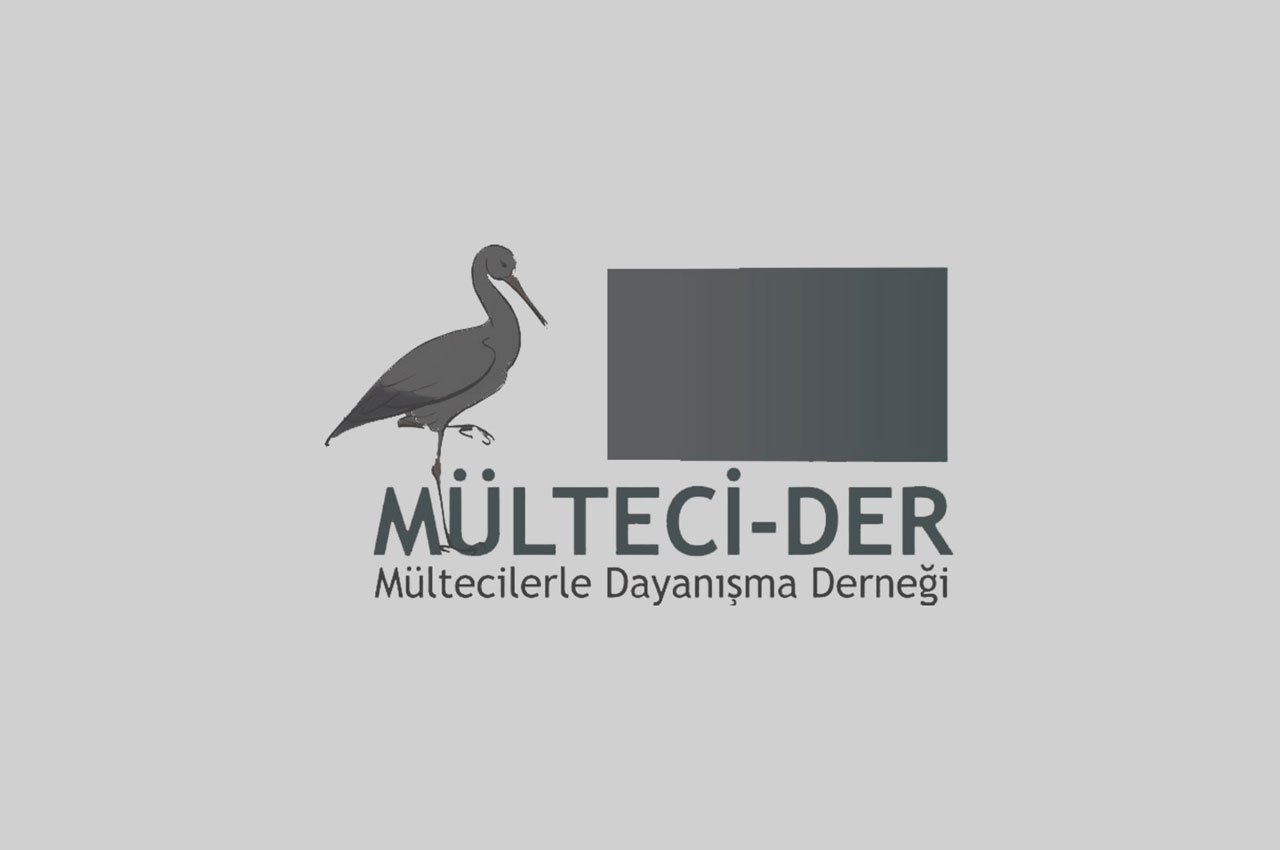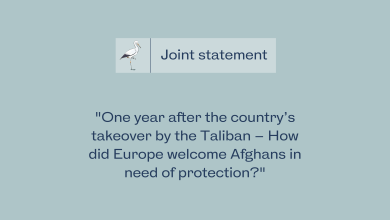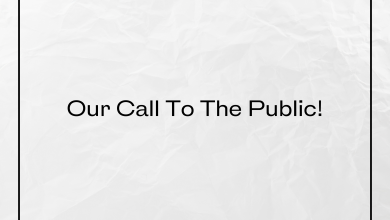
Joint Statement: Afghanistan Is Not Safe: The Joint Way Forward is Two Steps Backward

The European Union is negotiating with the Government of Afghanistan on the extension of the previously signed Joint Way Forward on migration issues. The JWF, which expires on 6 October 2020, was signed during the Brussels Donors Conference in 2016, without the involvement of the European Parliament and without the establishment of a transparent reporting mechanism to monitor the execution of the agreement, as is often the case with informal agreements. The agreement aims to deport Afghans who come to Europe for refugee protection to Afghanistan. It is believed that the Afghan government used EU development aid as a pressure tool to sign this unofficial memorandum.
We are concerned that the EU’s excessive focus on sending and deporting Afghans from Europe will continue to shape these talks. Cooperation with Afghanistan on returns and broader migration management, the EU’s policy towards Afghanistan, which should take into account the complex dynamics of migration from Afghanistan and migration within the region, should not focus solely on returns, and should primarily touch on the causes that fuel instability and violent conflicts in Afghanistan. should not harm.
The EU’s disproportionate focus on return to Afghanistan and abroad is counterproductive and cruel for the following reasons:
1) The current security situation in Afghanistan is dire. The Global Peace Index ranked the country as the least peaceful country in the world for the second time in a row. Afghanistan is grappling with a range of acute problems, from the ongoing security problem, the growing power of the Taliban, targeted killings and large numbers of people returning from neighboring countries from internally displaced persons (IDP). In addition to all this, the Covid 19 outbreak has had a devastating impact on the health system and economy. In its mid-term report, the UN Mission in Afghanistan (UNAMA) documented that 3458 people were killed or seriously injured between January and June 2020. The UN Office of Humanitarian Affairs (OCHA), in its 2020 annual forecasts even before the outbreak of the Pandemic, predicted that almost a quarter of the country’s population (9.4 million out of 38 million) will need humanitarian aid in 2020. In June 2016, areas under the control of the Taliban or under the control of the struggle constituted 21% of the country’s territory; That rate has now reached 66%, according to Long War Magazine.
Refugees from Afghanistan in neighboring countries now continue to live without clarity or prospects of integration in their protracted displacement. Most of the nearly 4 million Afghan refugees in Iran and Pakistan live in very bad conditions. According to the International Organization for Migration (IOM), 388,103 people returned to Afghanistan from Iran and Pakistan alone, including those deported from January to September 2020. This backward migration has had serious effects on Afghanistan’s living conditions. Afghan nationals were the second largest group of asylum seekers in Turkey in 2019. Refugees from Afghanistan face various difficulties in Turkey, such as fear of deportation, delays in the registration process, difficulties in accessing official documents, limited or no access to health services, education and shelter.
Migration between Afghanistan and the EU is affected by many factors, including changes in the countries neighboring Afghanistan. Continuing to stay in Iran, Pakistan and Turkey, returning to Afghanistan or going further are affected by the conditions of the citizens of Afghanistan in these countries. Cooperation between Afghanistan and the EU is unthinkable without ignoring these regional dynamics.
Asylum-seekers from Afghanistan, the second largest group seeking asylum in Europe in 2019, are treated very differently in European countries; There are serious changes in the recognition of protection needs from country to country. For example, the protection acceptance rate from 93.8% in Italy drops to 4.1% in Bulgaria, where there is no meaningful explanation of the context of the individual case. The persistence of these extreme disparities in protection rates shows that the cracks in the European asylum system and Afghan asylum seekers in need of protection are not treated fairly and consistently. Afghan citizens make up 50% of the refugees in the refugee camps on the Greek islands of the Aegean Sea, where more than 27,000 people live in very bad conditions. A large number of Afghan refugees and asylum seekers also live in poverty on the streets of Athens.
If the cooperation between the EU and Afghanistan is solely or disproportionately focused on deportation, the chance to work together on asylum and migration policies will be missed and the cooperation in question will be uneven as it does not include the priorities of both parties. The Afghan Government rightly demands a mutually beneficial and comprehensive migration cooperation, taking into account the positive attitude towards migration that is prevalent both among its citizens in Afghanistan and among Afghans in Europe.
The expansion of migration cooperation will also support the EU’s commitment to contribute to global responsibility-sharing for the implementation of the Global Compact on Refugees (GCR), its three-year resettlement strategy, and its strong desire to develop a common EU position on resettlement.
Considering the current situation in Afghanistan and the ambiguous situation of Afghan refugees in Europe, it is wrong and dangerous to focus excessively on returns to Afghanistan.
As the undersigned NGOs, organizations founded by refugees and members of the Afghan diaspora, we offer the following recommendations:
To EU and Member States:
- Stop forced returns to Afghanistan, taking into account the security situation in Afghanistan and the reintegration problems that returnees from Europe and neighboring regions face. Especially those belonging to vulnerable groups and those born and raised outside Afghanistan should not be “reported” in Afghanistan.
Consider EU cooperation in the field of migration within the EU’s overall approach to Afghanistan. Migration cooperation should not undermine the main goals of peace and security. - Address the root causes of forced migration, support the reintegration of returnees into society, support institutional reforms, accountable governance and transparent spending of aid.
- The short-term priority aiming at more deportations to Afghanistan will harm the EU’s comprehensive objectives and its ability to contribute to lasting peace and prosperity in the country.
- Commit financial support to combat the source causes of forced migration from Afghanistan at the upcoming Afghanistan Conference in Geneva.
- Consider regional dynamics when developing immigration policies for Afghanistan, including negotiations to renew the Joint Way Forward.
- This means that support to Afghanistan for Afghan citizens returning from neighboring countries is a priority.
- Avoid making development aid to Afghanistan or economic relations, including trade and investment, conditioned on increased forced returns.
- Remove cooperation in the field of migration from the borders of return and readmission by developing regular migration channels for people in need of protection and providing specific migration programs and facilities for safe and legal migration, including education and job migration.
- Request the European Border Support Office (EASO) to analyze and publish practices in EU Member States with low protection acceptance rates for citizens of Afghanistan, including all possible reasons for the difference.
- End the imposition of travel/entry bans on voluntary repatriates or deportations, other than those deemed a threat to security or those who have committed serious crimes, without going beyond the applicable international law framework.
To the European Parliament (EP):
- Request that the relevant EU institutions, especially the European Union Foreign Relations Service (EEAS) and the European Commission, inform the EP about the negotiations to extend the duration of the Common Path Forward (JWF), and that the EP be consulted on the process and that the EP Ensure that it can fulfill its supervisory role.
- Follow the Common Road Forward process and ensure that it does not violate international and European Union law on human rights and asylum and related fields.
- Ensure that EU development funds are spent on the root causes of forced migration and that European policymakers do not require cooperation in the field of migration to provide development funding.
Signatory Institutions:
Afghan Academy International
Afghanistan and Central Asian Association
Amnesty International
Asia Displacement Solutions Platform
asylex
AsylCoordination
Bhutanese Watch
Bureau for Rights-based Development (BRD)-Sweden
Caritas Europa
Center for Peace Studies
Cordaid
Danish Refugee Council
Defense for Children
Dutch Council for Refugees
European Council on Refugees and Exiles
European Evangelical Alliance (EEA)
European-Global Civil Society Organization
The Swedish Network of Refugee Support Groups, FARR
Female Fellows
Finnish Refugee Advice Center
Flemish Refugee Action
From Streets to School
Global Citizens’ Society
Greek Forum of Refugees
HIAS
IEZ7-2
INLIA Foundation
JRS Europe
Keihan Foundation
Migrantie Europe
Mosaico
MULTECI-DER
New Women Connectors
Norwegian Refugee Council
Passerell
PROASYL
Refugees International
She for She
Stichting LOS Netherlands
WE org
YEAR




